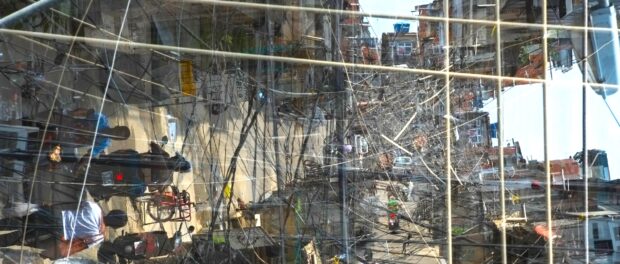
On Saturday, May 19, the Maria and João Aleixo Institute (IMJA) launched PERIPHERIES Journal, a biannual publication on the power of the world’s peripheral territories. Available online for free and in four languages (Portuguese, French, Spanish, and English), PERIPHERIES features the work of activists, researchers, and artists of the world’s peripheries with the goal of gathering collective experiences and building “a convergent and global representation of the Potency of Peripheries.”
The IMJA, a think tank located in Rio’s Complexo da Maré favela dedicated to the world’s peripheries, presented the publication last Saturday evening at the Maré Art Center, at an event featuring performances from the all-female samba group Samba Que Elas Querem and the favela poetry collective Poetas Favelados.
For IMJA founder Jailson de Sousa e Silva, the journal serves to “disseminate new concepts, methodologies, technologies, and varied aesthetic expressions to effectively show that the periphery needs to be seen in a different way, rather than from a point of view of precariousness and deficiency.”
The inaugural edition of PERIPHERIES thus features academic articles, photography, poetry, testimonials, book reviews, and interviews from across Brazil as well as Belgium, India, Scotland, and Cape Verde. These works ground themselves in what the IMJA has called “The Paradigm of Potency,” a concept that “stands in opposition to the paradigm of absence,” seeking instead to focus on the peripheries’ capacity to “generate practical and legitimate responses, forming counter-hegemonic life forms for society.”
According to the journal’s first edition’s feature article, The Paradigm of Potency and the Pedagogy of Coexistence, stigmatization of the world’s peripheries reproduces a cyclical negative pattern. Treating Brazilian favelas as well as global peripheries around the world as isolated, deficient, and destitute results in self-fulfilling prophecies and a process of symbolic denigration. These patterns influence and justify public policy, the impacts of which then further shape public opinion. PERIPHERIES therefore contests the 2010 census description of Brazilian favelas as “subnormal,” both for its focus on normative patterns as well as “for ignoring characteristics of strength in the territories in favor of certain policies guided by class norms, despite the clear existence of inventive power.”
For Sousa e Silva, PERIPHERIES provides for new ways to contemplate “the potency that these territories represent not only in Brazil, not only in Latin America, but all over the world, and affirm that [potency] more and more in terms of the interests of their residents.”



